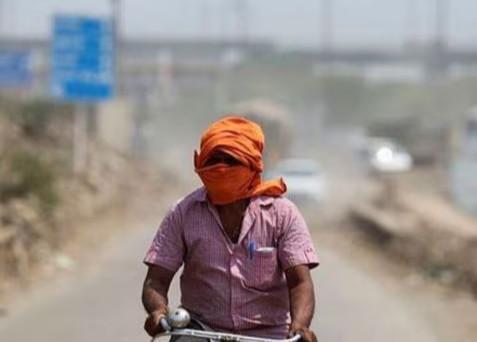
Extreme Heat Endangering Health & Productivity of Workers: Report
As the world grapples with the consequences of climate change, a new report by the World Health Organisation (WHO) and the World Meteorological Organisation (WMO) has sounded the alarm on the devastating impact of extreme heat on the health and productivity of workers. According to the report, worker productivity drops by 2-3% for every degree above 20°C, making it a pressing concern for industries and governments worldwide.
The report highlights the particular vulnerability of manual workers in agriculture, construction sectors, and vulnerable populations such as children and the elderly in developing countries. These groups are at a higher risk of heat-related illnesses, which can have severe and long-lasting consequences on their health.
Heat-related illnesses can range from mild heat exhaustion to life-threatening heatstroke, which can cause kidney dysfunction, dehydration, and even death. The report emphasizes that heat-related illnesses are not just a problem for individuals but also have significant economic and social implications.
The report’s findings are based on a comprehensive analysis of existing research and data from around the world. It highlights the urgent need for governments, industries, and individuals to take immediate action to mitigate the effects of extreme heat and protect the health and productivity of workers.
The Impact on Workers
The report’s findings on the impact of extreme heat on workers are alarming. For every degree above 20°C, worker productivity drops by 2-3%. This means that even a small increase in temperature can lead to significant declines in worker output and efficiency.
For manual workers, the risks are even greater. Those working in agriculture, construction, and other outdoor industries are more likely to be exposed to extreme heat, which can lead to heat-related illnesses. The report highlights the particular vulnerability of workers in developing countries, where access to healthcare, cooling systems, and other protective measures may be limited.
Health Risks
The report identifies several heat-related health risks that workers face, including:
- Heatstroke: A life-threatening condition that occurs when the body’s temperature regulation system is overwhelmed, causing the body temperature to rise rapidly.
- Dehydration: A condition that occurs when the body loses more fluids than it takes in, leading to symptoms such as headaches, fatigue, and dizziness.
- Kidney dysfunction: Heat-related illnesses can cause kidney damage and dysfunction, leading to long-term health problems.
Recommendations
The report provides several recommendations to mitigate the effects of extreme heat on workers, including:
- Implement heat stress policies and procedures: Governments and industries should develop and implement policies and procedures to prevent heat-related illnesses, including providing cooling systems, rest breaks, and hydration facilities.
- Provide heat-related training: Workers should receive training on heat-related illnesses, including recognition, prevention, and first aid.
- Encourage flexible working hours: Workers should be allowed to adjust their working hours to avoid extreme heat, particularly during peak temperature periods.
- Implement heat-mitigation measures: Industries should implement heat-mitigation measures, such as shading, ventilation, and cooling systems, to reduce the risk of heat-related illnesses.
Conclusion
The report’s findings are a wake-up call for governments, industries, and individuals to take immediate action to protect the health and productivity of workers. Extreme heat is a pressing concern that requires urgent attention and action. By implementing heat stress policies and procedures, providing heat-related training, encouraging flexible working hours, and implementing heat-mitigation measures, we can reduce the risks of heat-related illnesses and protect the health and productivity of workers.
Source: https://repository.inshorts.com/articles/en/PTI/45d9bd2d-ff57-417c-9e5f-831344bb34b0






